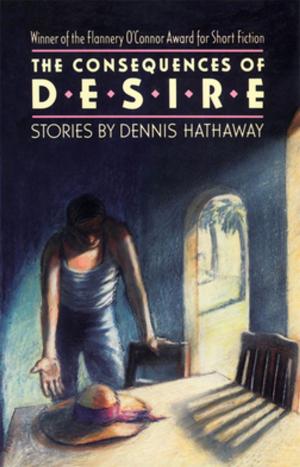To Live an Antislavery Life
Personal Politics and the Antebellum Black Middle Class
Nonfiction, Social & Cultural Studies, Social Science, Discrimination & Race Relations, History, Americas, United States, 19th Century| Author: | Erica L. Ball, Patrick Rael, Richard Newman | ISBN: | 9780820344676 |
| Publisher: | University of Georgia Press | Publication: | November 1, 2012 |
| Imprint: | University of Georgia Press | Language: | English |
| Author: | Erica L. Ball, Patrick Rael, Richard Newman |
| ISBN: | 9780820344676 |
| Publisher: | University of Georgia Press |
| Publication: | November 1, 2012 |
| Imprint: | University of Georgia Press |
| Language: | English |
In this study of antebellum African American print culture in transnational perspective, Erica L. Ball explores the relationship between antislavery discourse and the emergence of the northern black middle class.
Through innovative readings of slave narratives, sermons, fiction, convention proceedings, and the advice literature printed in forums like Freedom’s Journal, the North Star, and the Anglo-African Magazine, Ball demonstrates that black figures such as Susan Paul, Frederick Douglass, and Martin Delany consistently urged readers to internalize their political principles and to interpret all their personal ambitions, private familial roles, and domestic responsibilities in light of the freedom struggle. Ultimately, they were admonished to embody the abolitionist agenda by living what the fugitive Samuel Ringgold Ward called an “antislavery life.”
Far more than calls for northern free blacks to engage in what scholars call “the politics of respectability,” African American writers characterized true antislavery living as an oppositional stance rife with radical possibilities, a deeply personal politics that required free blacks to transform themselves into model husbands and wives, mothers and fathers, self-made men, and transnational freedom fighters in the mold of revolutionary figures from Haiti to Hungary. In the process, Ball argues, antebellum black writers crafted a set of ideals—simultaneously respectable and subversive—for their elite and aspiring African American readers to embrace in the decades before the Civil War.
Published in association with the Library Company of Philadelphia’s Program in African American History. A Sarah Mills Hodge Fund Publication.
In this study of antebellum African American print culture in transnational perspective, Erica L. Ball explores the relationship between antislavery discourse and the emergence of the northern black middle class.
Through innovative readings of slave narratives, sermons, fiction, convention proceedings, and the advice literature printed in forums like Freedom’s Journal, the North Star, and the Anglo-African Magazine, Ball demonstrates that black figures such as Susan Paul, Frederick Douglass, and Martin Delany consistently urged readers to internalize their political principles and to interpret all their personal ambitions, private familial roles, and domestic responsibilities in light of the freedom struggle. Ultimately, they were admonished to embody the abolitionist agenda by living what the fugitive Samuel Ringgold Ward called an “antislavery life.”
Far more than calls for northern free blacks to engage in what scholars call “the politics of respectability,” African American writers characterized true antislavery living as an oppositional stance rife with radical possibilities, a deeply personal politics that required free blacks to transform themselves into model husbands and wives, mothers and fathers, self-made men, and transnational freedom fighters in the mold of revolutionary figures from Haiti to Hungary. In the process, Ball argues, antebellum black writers crafted a set of ideals—simultaneously respectable and subversive—for their elite and aspiring African American readers to embrace in the decades before the Civil War.
Published in association with the Library Company of Philadelphia’s Program in African American History. A Sarah Mills Hodge Fund Publication.















